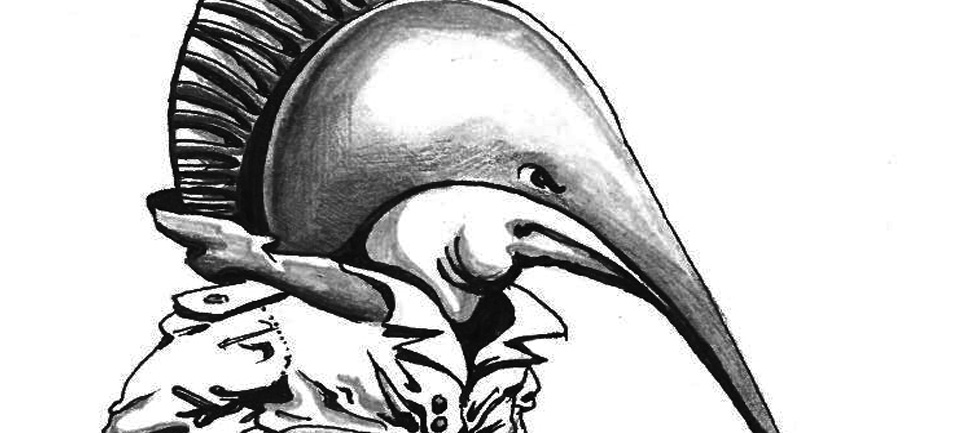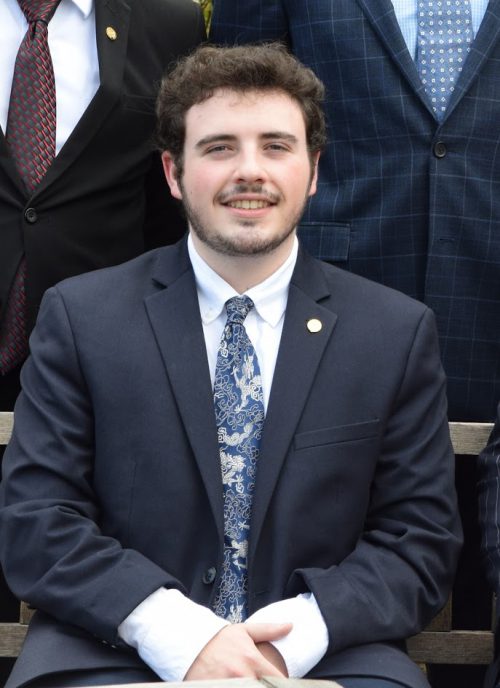Traditions serve as a reference point for many cultural values. At Virginia Wesleyan College, I view traditions as the glue that holds the community together as soon as we step onto campus. The rituals our predecessors performed are also performed by the incoming classes. At least, that is how it used to be. While we were once linked together through those same rituals, that consistency is no more. When a new tradition comes about, or a long-standing tradition is removed, it disrupts the bond between the campus community.
This year, freshmen were given pennies and instructed to toss them into the fountain outside of the Boyd Dining Center in lieu of attending a sacred ceremony where students traditionally signed a giant sheet containing the honor code. The honor code is a creed that pledges honesty both academically and socially. While at the fountain, students also were encouraged to rub the foot of the founder of Methodism, John Wesley. In addition to throwing the penny into the well and rubbing the statue for good luck, students attended a skit about the honor code. It was performed by members of the VWC community. Despite attending the skit, the students still did not attend any event to sign a document containing the honor code at all during orientation.
At Virginia Wesleyan College, the importance of the honor code is stressed to students in every class. Most professors include the honor code policy in their syllabus. Some even include a special section on exams for students to pledge that they have neither given nor received help on the exam.
Another new tradition added to the lineup was the addition of Founder’s Day. Founder’s Day centered around the history of the college. Board of Trustee member George Birdsong served as the keynote speaker for the event. This event also assumed the place of the traditional ceremony, Fall Honors Convocation. Traditionally, Fall Honors Convocation was included in orientation and there was a speaker that would typically address the first-year students. They catered their speech to them and made sure to focus on how their college journey would assist them in choosing the path of their life after college. While I think it is important to recognize the history of the college and have an important member of the Board of Trustees such as Birdsong speak at the event, I think Founder’s Day Convocation holds just as much importance as the Fall Honors Convocation. Having both events could have benefitted everyone. The old tradition could have been continued even though a new one was added. The incoming classes are the future of the college. If we dwell too much on the past and not enough on the future, there will be no future of the college.
VWC orientation organizers also removed the tradition of painting the Adirondack chairs. While I view class bonding as essential to the college first year experience, I do not think it was detrimental to have removed this tradition. There are other ways to bond as a class. For example, my first year my classmates and I bonded over a scavenger hunt assignment. I was not a big fan of painting the chairs. I thought it was awkward trying to coordinate who would paint what on the chair. For most of us, it was our first time being together, so we didn’t know how to communicate. I felt as though our time could have been better spent doing something else.
As a senior, I was baffled at the idea that the first-year students did not attend the ceremony that classes in the past had to attend. Instead, they wished upon a penny and got to laugh the night away while watching someone get in trouble in a hypothetical situation. To me, making a skit of the honor code does not seem to portray the seriousness of the obligation we have to not plagiarize. To this day, I am still confused as to how the new traditions benefit the class of 2020 and future classes, should the traditions continue. To me, the most important tradition to continue is the signing of the honor code. In order for students to be held responsible, having a signed document is a good reference in the event that a student plagiarizes his or her work. Not stressing the importance of the honor code through the signing ceremony as soon as students come onto campus suggests that the code does not hold much weight on the campus. Bringing this tradition back would be ideal.
Staff Writer

